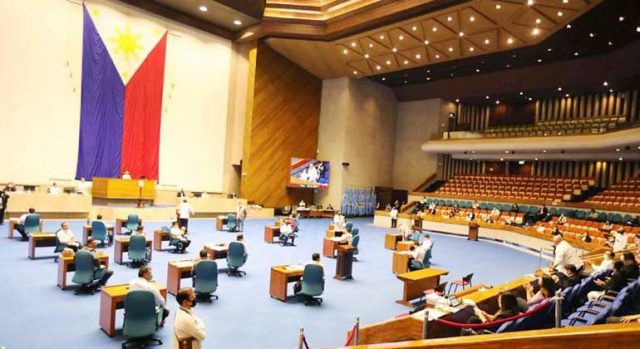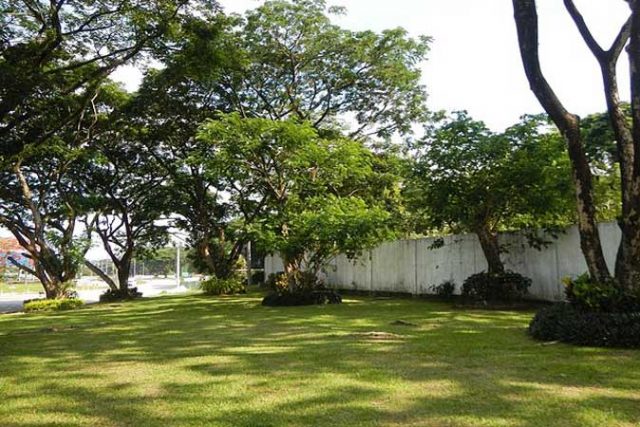(Part 3)
In a trail blazing paper by Dr. Jordi Canals, former Dean of one of the top business schools in the world, the IESE Business School in Barcelona, Spain and now IESE Foundation Professor of Corporate Governance, a new notion in contemporary management and corporate governance is amply explained. This notion is called “purpose” and is distinguished from the usual “mission” and “vision” terms common in management literature. After clarifying what “corporate purpose” means, Dr. Canals presents a framework for boards of directors to work on purpose. His recent paper, completed at the height of the pandemic in January 2021, is precisely titled “The Role of Corporate Purpose in Corporate Governance: A Framework for Boards of Directors and Senior Managers.” Corporate purpose, properly understood, “has the potential to be an engine for organizational change, improve corporate governance and help reconnect companies with relevant stakeholders and society.” Both Dr. Jesus Estanislao, Founder of the Institute for Corporate Directors and I had the pleasure of working with Dr. Canals during our tenures as Visiting Professor at the IESE Business School.
According to Dr. Canals, the notion of purpose has relevant roots in the field of management. Some of the more famous management authors that elucidated on the purpose of a corporation were Chester Barnard, Peter Drucker, Kenneth R. Andrews, and Philip Selznick. Some of these authors pointed out that the original concept of the corporation in Roman Law always included a sense of purpose: “from the piae causae of Ancient Rome to Medieval monasteries and the City of London, corporations have been purveyors of education, civic administration, public works, philanthropy and spiritual engagement for millennia.” Towards the end of the 18th century and the first half of the 19th century, the world witnessed the industrial revolution (first in England and then in Continental Europe) and the development of capitalism. There arose new growth opportunities, especially in manufacturing, because of rapid technical change. The role of profits in financing new ventures and in motivating entrepreneurs became more powerful. The emergence of stock exchanges that attracted the savings of a larger number of the population benefiting from economic progress, coupled with a growing number of listed companies seeking large amounts of public funding reinforced the importance of financial performance and investors’ protection.
The appearance of the importance of profit for the mobilization of savings and the financing of more projects for the benefit of the population, however, never excluded the action and motivation of entrepreneurs with the desire and commitment to have a positive social impact through their businesses. Over the past two centuries there have always been entrepreneurs with a willingness to address some of the world’s most chronic and entrenched problems though a business, going beyond philanthropy such as the “obras pias” or “obras de misericordias” that existed in the Philippines during the Spanish colonization period. Philanthropy was always considered a commendable action in all cultures. As more entrepreneurial people arose with the development of capitalism, corporate purpose appeared to be a more articulated and effective way that companies could adopt to help address some needs of society in general or of some specific individuals. The business approach is more complex and challenging than pure philanthropy (which relied completely on the sheer generosity of benefactors). By starting a business, however, entrepreneurs can address social needs with new products, business models and practices that are more sustainable from a financial viewpoint, while creating jobs, paying decent wages and improving the education of employees.
A more accurate historical account of western capitalism would reveal that this view of companies and entrepreneurs and their connection with the common good of society was implicit in the development of capitalism in Western Europe in the 19th and 20th centuries, in particular in the Western Germany economic model after World War II. Even in countries and industries where shareholders’ profitably was the first investment criterion, the assumption that companies had to help society was an implicit notion in the social contract between business and society. Government gave companies the license to operate in exchange for providing social good, while avoiding social harm. As the famous Peter Drucker observed many years before the growth of the Corporate Social Responsibility (CSR) movement, “Free enterprise cannot be justified as being good for business; it can be justified only as being good for society.” At least during the first half of the 20th century, large shareholders and family enterprises, together with their respective top managers, had a clear realization that they had a duty towards society, that they had to contribute to the common good of society. These ideas, however, were increasingly in competition with the notion of shareholder primacy that was emerging in the United States.
People not familiar with the history of business in the Western World will be surprised to learn that the notion that profit maximization should be the dominant goal of the firm is a more recent idea, gaining popularity and following only in the 1960s and 1970s when it was strongly advocated by Nobel Laureate Milton Friedman of the University of Chicago. Acceptance of this principle accelerated in the 1980s with the explosion of hostile takeovers and highly leveraged MBOs (Management Buyouts). The radical deregulation of capital markets in the US and the UK in the 1980s and increasing pressure to place shareholder primacy above any other interest contributed to its widespread acceptance in the business world. As Dr. Canals wrote, “Maximizing shareholder value became the new business mantra.” The trend towards giving short shrift to human and social values, not to mention the physical environment, intensified. Outsourcing, first, and globalization and offshoring, later were considered drivers that improved corporate performance, no matter what the costs to other stakeholders of business. Shareholder returns became the overwhelming metrics of success. Access to emerging markets and the digital revolution of the mid-1990s magnified the power of these ideas. Workers gradually became mere “resources,” especially in the low-wage countries to which many manufacturing operations migrated. The social dimension of business was practically eclipsed. All these trends culminated in the Great Recession that started in 2008 which brought the global economy to the brink of collapse.
The obsession with profit maximization was met by a counter pressure to replace the paradigm of shareholder value maximization by certain notions of purpose. There appeared the so-called “impact” investors who insisted that companies have to come to terms with a more complex reality. These asset managers and family offices are putting pressure on firms to consider in their strategies, policies, and operations the costs and risks associated with the environmental, social and governance (ESG) issues. They have started to be more vocal about the need for companies to specify a purpose and care for the environment, explain how they nurture a positive corporate culture, and report on ESG factors. They support the view that purpose and corporate culture shape behaviors and eventually may have an impact on the ability of the firm to create sustainable economic value. With the backing of government regulators, asset managers are demanding that companies conduct their business operations with a clear purpose that goes beyond profit maximization.
For the past few decades, people in business and the academe have been using the terms “mission” and “purpose” interchangeably. More often than not, mission is usually derived from the product-market scope of a business firm. For example, the largest pharmaceutical company in the Philippines, United Laboratories (Unilab), states as its mission: “We provide quality and affordable healthcare products and services that promote and enrich life for all communities that we serve by working together as one united family.” Having known personally the late founder of Unilab, Jose Y. Campos, I have first-hand knowledge that for him the company purpose went beyond this mission statement. His magnificent obsession was to take very good care of all the people working for the company and to imbue in them the famous “bayanihan” (communal unity, work and cooperation) spirit for which the company is well known and which has been sustained by those members of his family and top executives who succeeded him. It must also be pointed out that the firm’s purpose is different from a vision statement. The firm’s purpose explains why a company exists. The firm’s vision expresses an aspiration concerning what the firm is trying to achieve. For example, the Vision statement of Unilab is: “We shall be the best provider of healthcare in Asia.”
After surveying numerous business authors, Dr. Canals arrived at a workable definition of “corporate purpose”: “A corporate purpose is not about a financial estimate of future benefits associated with a certain competitive positioning, or an efficient business model. It is an explanation of why a company exists, what it tries to do for its customers and people, what impact it is having on society, what difference this company is making, and how it tries to do those things and also create economic value.” The British author who has been the most exhaustive in probing the concept of corporate purpose is Colin Mayer, who is Professor of Management Studies at the Said Business School of the University of Oxford. Professor Mayer wrote a recent book entitled The Principles for Purposeful Business (2019) in which he proposes that “the purpose of the corporation is to do things that address the problems confronting customers and communities, suppliers and shareholders, employees and retirees.” Profits are not the purpose of the corporation, but an outcome. This definition leads to a wider perspective on purpose. Mayer also points out that corporate purpose is neither a definition nor an aspiration. It is a specific perspective on a problem that the company wants to solve.
Commenting on the writings of Mayer on corporate purpose, Dr. Canals clarifies that Mayer’s definition understands that purpose should not be reduced to a statement or some guidelines. It should be a central pillar of a firm’s corporate governance and management model. Companies should be explicit about the specific contribution that they want to make in terms of addressing some specific needs with a business solution. Corporate purpose should help clarify this and should have an impact on strategy, organizational culture and the firm’s business model. Strategy, organization, and policies should be articulated around the unique value proposition or service that it wants to provide customers and the problem that the company wants to solve. Purpose expresses why a company exists and which customers’ needs it wants to serve, in a profitable and sustainable way, and with a positive impact on all its stakeholders. By using this notion, corporate purpose should make explicit why a company exists, what it tries to do to service its customers, how it counts on its people and other stakeholders, how it tries to do those things and also create economic value, and what impact it is having on the planet and society. This definition of purpose allows the inclusion of ESG factors that a company needs or wants to consider but goes beyond those factors and tries to integrate them into the firm’s strategy. This definition also expresses that purpose goes beyond ESG dimensions. If we understand purpose in this holistic way, then it is obvious that the primary responsibility to shape the company’s corporate culture, strategy, and business model rests on the board of directors and top management. Articulating corporate purpose is the surest way to guarantee that concern for goals other than profit maximization will be pursued mainly from within the organization rather than from external investors and government regulators.
Bernardo M. Villegas has a Ph.D. in Economics from Harvard, is Professor Emeritus at the University of Asia and the Pacific, and a Visiting Professor at the IESE Business School in Barcelona, Spain. He was a member of the 1986 Constitutional Commission.
bernardo.villegas@uap.asia













